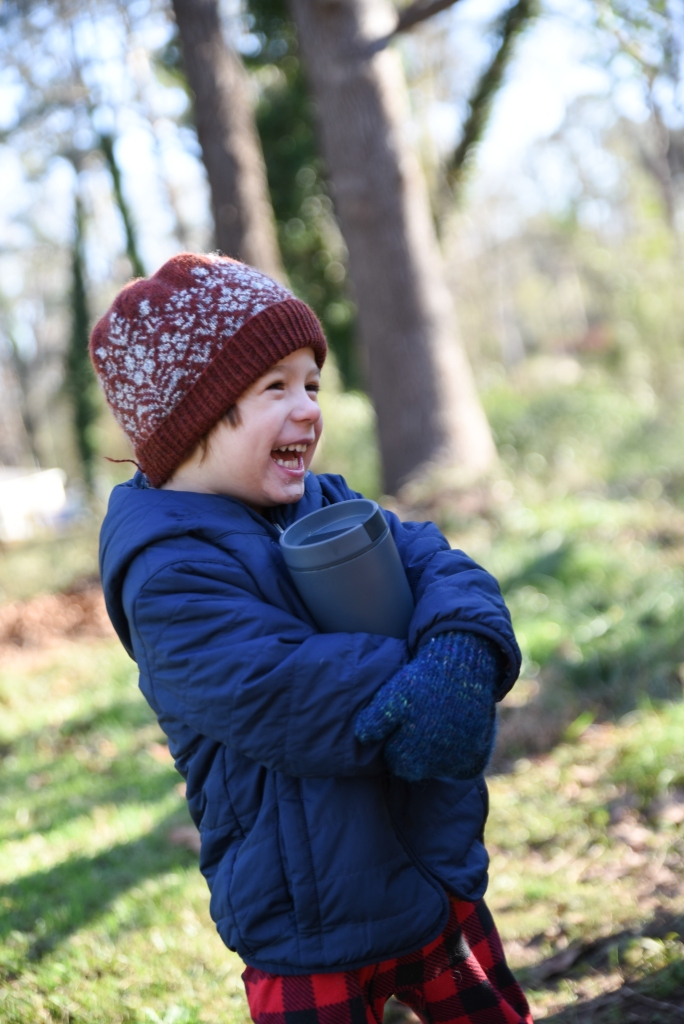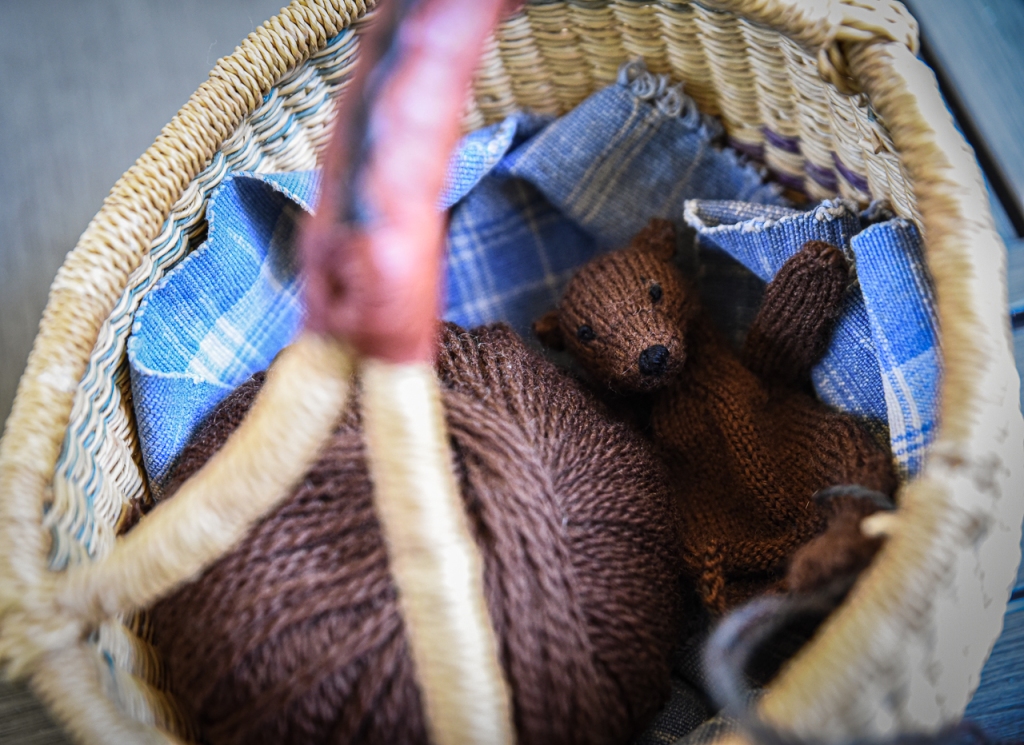Last week, I read an article on hobbies that talked about the fact that most people struggle to pick them up and then keep going. As someone who has both glommed onto my hobbies as a central, shaping force in my life, and abandoned hobbies (like the guitar I tried to pick up in college), I can see the road to both outcomes: one filled with lifelong habits and hobbies, and one with many abandoned attempts along the way.
For me, there are key differences in the hobbies that stuck vs. the ones that got abandoned, and they didn’t necessarily have anything to do with the time spent doing them or my dedication to them. Instead, I’ve noticed two key ingredients to picking up a hobby: developing a social circle who does the same hobby, and focusing on the process instead of the outcome.
Take knitting for example: I developed an interest in high school, and during one summer while my grandma was visiting, asked if she’d be willing to teach me. We went to the store and purchased needles and balls of yarn and a knitting book, and then she taught me the basics.
I knitted a couple of crummy hats and an unraveling scarf (typical of most new knitters), and by the time my sophomore year of college rolled around I probably would have abandoned the hobby altogether except for my friend Jess, who’s a talented and avid knitter.
Jess was my portal into the larger world of knitting. Before Jess, I was just a person trying to learn to knit based on my grandma’s instructions from three summers before and a book. After Jess, I was hooked into the larger knitting community. She showed me the best knitting patterns for beginners, sent links to her favorites yarns, and taught me how to knit in the round–something that had completely intimidated me prior.
My love of knitting was forged over a year of sitting side by side on her couch, working on throw blankets together.
Then flash forward to my junior year, and a trip to Australia, and suddenly I found myself knitting beside one of my professors, Meghan. Watching her easily and quickly knit beautiful pieces (and seeing the adorable hats and sweaters she’d knit for her two cute sons), I was completely inspired. Through Jess and Meghan, my eyes had been opened to both the possibilities of knitting as a craft, and also to how a hobby can shape your identity and become a lifelong skill to nurture.

When you contrast this to trying to learn guitar (alone, in my dorm room), the differences are obvious: it was the people I encountered who turned me into a knitter. I think this is the main element of building hobbies (and habits, for that matter), that people forget about: the social element. Being part of a community of people engaged in an activity together is incredibly powerful.
To this day, my knitting community (even if we aren’t in the same physical place) is one of my most beloved and cherished groups of people. Jess and I regularly leave each other video messages showcasing our latest knits, and share patterns between each other. And Meghan recently sent our littlest a precious stuffed rabbit that she knitted for him (which then inspired me to try my hand at knitting a tiny stuffed bear).
It’s grown too: my sister-in-law Alicia and I are going to knit the same sweater pattern together next month, and my childhood friend Alex learned to knit while staying with us last fall (so she could watch Linden while we went to the hospital to have Hollis), and has become an incredibly proficient knitter in a short amount of time.
I can’t express how lovely it is to think about the entire lifetime I have ahead of me where I get to engage in an activity that I find so inspiring, fulfilling and challenging. Just think of everything one person can knit in a lifetime–sweaters and toys, socks and mittens, hats and scarves, blankets and throw pillows. I can’t wait to knit it all.
The second important element to starting hobbies that stick is learning how to not focus on the outcome. This was a trick I learned though backpacking (a hobby that I haven’t engaged in lately because BABIES, but that I can’t wait to pick up again once our kids are old enough to carry packs).
The first couple of days on my first trip out were miserable. I couldn’t stop thinking about the final destination. I’d count out every step, constantly measuring how much closer we must be to the lean-to or outlook or wherever it was we were headed.
By the third day, I’d realized that if I didn’t let myself think about my destination, suddenly backpacking because so much more enjoyable. In thinking constantly about stopping, I was missing all of the lovely vistas, the gradual changing of the forest and fields we walked through, the pleasant sense of exertion as we hiked up hills and down them again.
The same is true of all hobbies. If you start out a new exercise program thinking about how toned and cut you’re going to look, you’re doomed to fail. Same goes with knitting: if I get too excited about the finished product, every stitch feels like a chore as I work to get to that sweater or mitten or tiny stuffed bear. Instead, I’ve learned to moderate my thoughts and expectations, and enjoy things for the process of doing them instead of for the final outcome.

This has been an absolute game changer. It wasn’t an overnight switch–it took me time to learn to enjoy the actual process of knitting. To enjoy the feeling of exercising for the sake of moving my body. To love the process of writing a novel, instead of getting all hung up on the final product. It isn’t easy to do (meditation and mindfulness exercises helped me get better at it), but once you’ve mastered it, you can do almost anything you set your mind to.
Through writing novels, knitting sweaters and climbing mountains, I’ve seen how every stitch, word, and step adds up in a big way.
If you can figure out how to enjoy the smallest unit of your chosen hobby, then you’re already well on your way to a lifetime of reward and satisfaction. Add in a beloved community of people who are also obsessed with the thing you love, and you have a recipe for hobby success.
